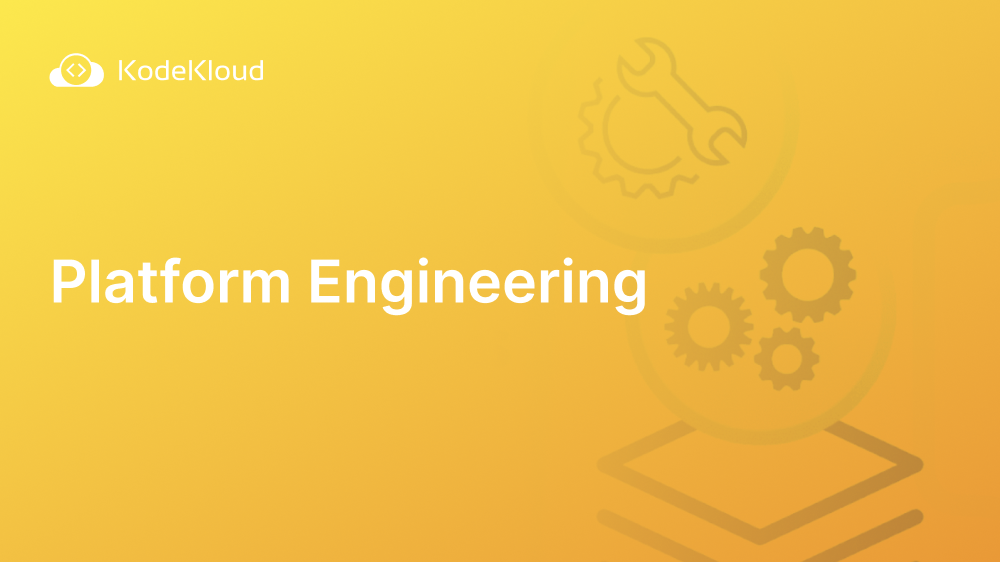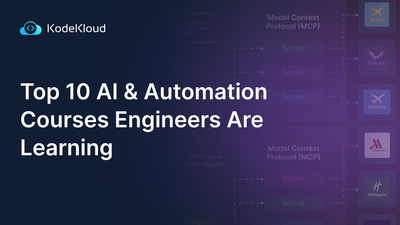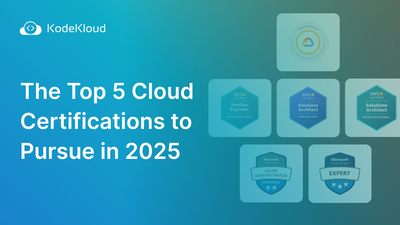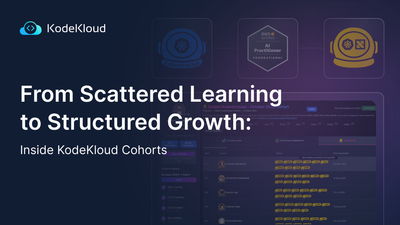In an era of rapid technological change and digital transformation, platform engineering has become essential for organizations to remain competitive and agile. This article will explore what platform engineering entails, its latest trends, best practices to follow while implementing it, and future expectations.
What is Platform Engineering?
Platform engineering is the process of designing, building, and maintaining the software platforms that support modern digital businesses. At its core, platform engineering is about creating software platforms that enable organizations to build and deploy applications quickly and efficiently. A platform is a set of tools, services, and infrastructure that developers use to build, test, and deploy software applications. Platform engineering involves designing and implementing these platforms, as well as ensuring their security, scalability, and reliability.
Relationship between DevOps and Platform Engineering
DevOps and Platform Engineering are interconnected because they both focus on enhancing the software delivery process. DevOps is about enabling collaboration and communication between development, operations, and other stakeholders to create a culture of continuous improvement. Platform Engineering, on the other hand, involves designing and implementing the infrastructure and tools required to support the software development process.
By combining these two practices, organizations can create a streamlined, automated, faster, and scalable software delivery pipeline that can handle the demands of modern software development. Platform Engineering provides the foundation for DevOps by creating the necessary infrastructure, tools, and services for continuous integration and deployment, while DevOps provides the methodology and cultural shift required to make the most out of these capabilities.
Importance of Platform Engineering
Platform engineering is critical for organizations that want to stay ahead of the curve in the rapidly evolving digital landscape. By investing in platform engineering, businesses can:
- Improve development speed and agility
- Enhance software quality and reliability
- Achieve greater scalability and cost-efficiency
- Facilitate collaboration and communication among development teams
- Reduce time-to-market for new products and services
Trends in Platform Engineering
Several key trends are shaping the world of platform engineering today. They include:
Automation in Platform Engineering
Automation is becoming increasingly important in platform engineering because it helps to reduce manual errors and streamline the development process. Tools such as Puppet, Chef, and Ansible are popular for automating infrastructure and configuration management.
Containerization and Microservices Architecture
Containerization and microservices architecture is revolutionizing the way software is developed and deployed. Technologies such as Docker and Kubernetes enable developers to create portable, lightweight, and scalable containers for their applications, making it easier to deploy and manage them across multiple environments.
DevOps Practices and Toolchains
DevOps is a cultural and technical movement that emphasizes collaboration and integration between development and operations teams. DevOps practices and toolchains, such as GitLab, Jenkins, and Travis CI, enable organizations to automate and optimize their software development pipelines.
Thriving Platform Engineering Community
The Platform Engineering community is growing rapidly, driven by the rise of DevOps and cloud-native technologies. This community provides a valuable resource for knowledge sharing, collaboration, and professional development. As the community continues to grow, we can expect to see more resources, tools, and communities emerge to support this important role in software development.
Join the Platform Engineering Slack Community here.
Best Practices in Platform Engineering
There are several best practices that can help organizations get the most out of their platform engineering efforts. These include:
Adopting Agile development methodologies: Agile methodologies, such as Scrum and Kanban, emphasize iterative and collaborative development, continuous feedback, and rapid prototyping. By adopting agile practices, organizations can reduce time-to-market and improve software quality.
Emphasizing security in platform engineering: Security is a critical consideration, as software platforms are often the targets of cyberattacks. Best practices for platform security include implementing multi-factor authentication, network segmentation, and regular vulnerability scanning.
Implementing automation in the development and deployment processes: Implementing strategies such as continuous integration and deployment (CI/CD) involves automating the software build, test, and deployment process. By automating these processes, organizations can reduce errors and accelerate time-to-market.
Collaboration and communication: Effective collaboration and communication between development teams and other stakeholders is critical for platform engineering success. Tools such as Slack and Microsoft Teams can help to facilitate communication and collaboration across distributed teams.
Challenges and Solutions in Platform Engineering
Like many modern solutions, Platform engineering comes with several challenges. Below are some of the challenges and possible solutions.
Complexity in large-scale software systems
Managing complex systems is a challenging task for any platform engineer. As systems grow and become more complex, they become more difficult to manage and maintain.
One approach to managing complexity is to use a microservices architecture, which allows for smaller, more manageable services that can be developed and deployed independently. Other solutions to managing complexity include using automation tools to simplify repetitive tasks and implementing agile development methodologies.
System scaling difficulties
As businesses grow, their software systems need to scale to meet the demands of their expanding customer base. However, scaling software systems can be a daunting task for platform engineers. They need to ensure that their systems can handle increased traffic and maintain the same level of performance.
The scaling challenge can be resolved by using cloud-based infrastructure that supports load balancing and auto-scaling. Additionally, implementing Infrastructure as Code (IaC) with tools such as Ansible and Terraform will help teams manage cloud resources reliably and efficiently. Instead of manually scaling servers and other resources - a practice that can lead to configuration drift - IaC enables teams to scale them up automatically.
Ensuring software reliability and resilience
Software reliability and resilience are critical for any platform engineer. Ensuring that software systems are reliable and resilient means they can recover from failures quickly and efficiently.
Implementing automated testing and monitoring tools can help detect issues early and prevent them from escalating into bigger problems. Additionally, adopting deployment methods that allow for rollbacks ensures that downtimes due to updates containing bugs are mitigated.
Dealing with Automation Complexities
Automation is an essential aspect of platform engineering, but it can also be a source of complexity. One team may request a new automation process, which may have cascading effects on other systems. To address this challenge, platform teams must carefully evaluate automation requests and ensure that they do not cause disruptions to the overall infrastructure.
Repeating Configuration Steps Consistently
Platform engineering also involves repeating the same configuration steps consistently to set up environments. This can be a time-consuming process, and any inconsistencies can lead to issues down the line. To address this challenge, platform teams should invest in automation tools such as Ansible to help streamline this process.
Managing Configurations Across the Infrastructure
One of the primary challenges in platform engineering is managing configurations, especially when dealing with multi-cloud architecture. A simple file type difference like JSON and YAML configs can lead to additional management overhead. To address this challenge, platform teams must ensure that all configurations are stored securely, consistently, and in a centralized location.
Challenges in choosing the right platform engineering tools and technologies
Choosing the right platform engineering tools and technologies is crucial for success. With so many tools and technologies available, it can be challenging to determine which ones are the best fit for your business. It’s essential to evaluate each tool and technology carefully and choose the ones that meet your specific requirements.
There are several platform engineering tools available in the market. Here are some of the most popular ones:
- Kubernetes: It is an open-source container orchestration platform that automates the deployment, scaling, and management of containerized applications.
- Docker: It is a tool that automates the deployment of applications inside containers, which provides an efficient way to create, package, and distribute applications.
- Ansible: It is an open-source automation tool that enables platform engineers to manage infrastructure, configure applications, and deploy software across multiple machines.
- Jenkins: It is an open-source automation server that helps with continuous integration and delivery, allowing platform engineers to build, test, and deploy software faster.
- Terraform: It is a tool that provides a simple and efficient way to manage infrastructure as code, allowing platform engineers to automate the deployment and management of infrastructure resources.
- GitLab: It is a web-based Git repository manager that provides a complete DevOps platform, including continuous integration, deployment, and delivery.
- Amazon Web Services (AWS): It is a cloud-based platform that provides a wide range of services and tools for building and deploying applications, including computing, storage, databases, and more.
- Google Cloud Platform (GCP): It is a cloud-based platform that provides a wide range of services and tools for building and deploying applications, including computing, storage, databases, and more.
- Microsoft Azure: It is a cloud-based platform that provides a wide range of services and tools for building and deploying applications, including computing, storage, databases, and more.
- Puppet: It is an open-source configuration management tool that automates the deployment and management of infrastructure and applications across multiple machines.
- ArgoCD: It is an open-source tool for managing and deploying applications to Kubernetes clusters. It provides a declarative approach to application delivery, enabling users to define desired application state and automatically manage deployment and configuration drift.
The Future of Platform Engineering
Platform engineering is an ever-evolving field. Emerging technologies and trends, such as serverless computing and edge computing, will continue to shape the future of platform engineering.
AI and machine learning are poised to transform platform engineering by helping teams automate and optimize many aspects of software development, including testing and monitoring. This will lead to faster development cycles and improved efficiency.
Platform engineering's popularity will continue to grow because it is an essential component of digital transformation. As more businesses move their operations online, they will need robust and scalable platforms to support their digital initiatives.
The challenges facing platform engineers are complex, but there are solutions available. Platform engineers can succeed in a rapidly changing digital landscape by managing complexity, scaling software systems, ensuring software reliability and resilience, and choosing the right tools and technologies.
The future of platform engineering is exciting, with emerging technologies like AI and machine learning set to play an even more significant role in platform engineering. As businesses continue to undergo digital transformation, platform engineering will remain a key enabler of success.
Overall, platform engineering is the key to DevOps' success at scale. By embracing platform engineering best practices, businesses can achieve greater agility, collaboration, and innovation. Platform engineering will remain a critical component of their success as businesses continue to evolve.
Conclusion
In conclusion, platform engineering is essential for modern software development. By adopting platform engineering best practices, businesses can increase their agility, improve collaboration and communication, and accelerate their time to market. Product management skills, including communication, systems integration, automation, and testing, are essential to platform engineering.
We hope this article has been informative and provided valuable insights into platform engineering. Remember, the key to successful platform engineering is continuous learning and improvement. Keep experimenting, testing, and collaborating with your team to create robust and efficient software systems that meet your customers' needs and drive business growth.
Other interesting reads:
- 10 Essential DevOps Tools You Should Learn in 2024
- 17 DevOps Monitoring Tools to Learn in 2024
- Top 15 DevOps Automation Tools You Should Learn in 2024
- 4 DevOps Metrics You Need To Track Quality And Performance
- How To Scale DevOps: People, Processes, and Platforms
- How to Learn Kubernetes and Docker
- Optimizing Kubernetes Clusters for Cost & Performance: Part 1 - Resource Requests
- Cloud-Native Architecture: The 5 Key Principles Explained
- Deploying, Maintaining, and Scaling Kubernetes Clusters
















Discussion